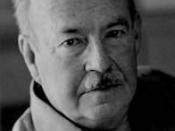Alexander's theoretical approach towards Parsons' "Unit Act" theory is clear. In his theory, Parsons states that an individual has a degree of free will. Every person according to this model has the capacity to act. He (Parsons) grants that every actor has control of his or her own destiny, and free will is an indispensable part of everyday theory. He also states that individuals cannot realize their goals automatically, that is, simply as the manifestation of their efforts. In his book, Alexander states, "Parsons' Unit Act reflects a hypothetical actor in a hypothetical situation who strives against nature to accomplish their goal" (Alexander 24). By this, it's clear that the author mentioned how hard one has to work to receive benefits. However, society always intrudes between what we see and us. Sometimes we are helpless in the face of conditions.
It's clear that Parsons' theory demonstrated that Parsons tried to bring the collective and the individual together.
By attempting to develop this theory, he tried to integrate these aspects into human behavior between the collective and the individual. Parsons believed that roles are in the social system (two or more individuals) which gives you a reward.
The point that Alexander brings out is that there is a bias in Parsons' system. He illustrated that Parsons has a dispute with the rational and the individual. He says that Parsons, in his analysis supported the collective-normative. He believes that Parsons had a theory, but new theories will rise against him. As Alexander states, "Its only version of Anti-Parsonianism manifests itself in an attack not on parson's alleged idealism but on his very lack of it, on the way he insistently emphasized the autonomy of social system problems and the independence of personality"...


